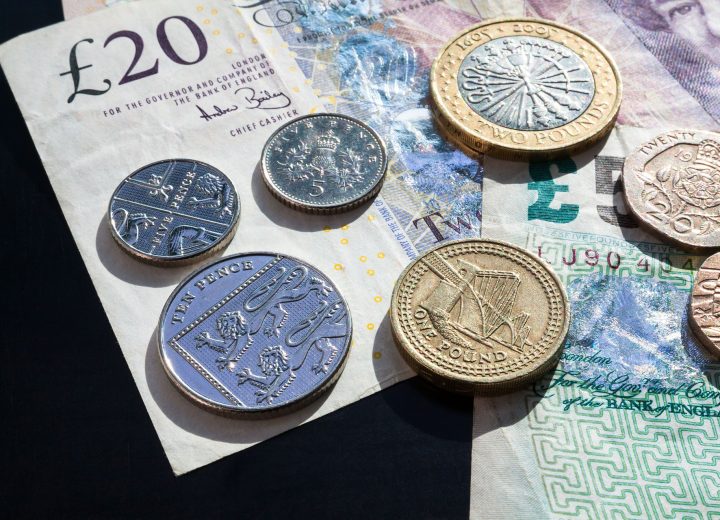Black Friday – Great for a Bargain or Just Clever Marketing?
Today, many of us will traipse around the shops on the hunt for a Christmas bargain, but have we all bought (quite literally) into a false pretence thanks to clever marketing techniques?
It’s only just Black Friday, but I’m sure your Twitter timeline and Facebook feed are clogged up with time-limited deals already.
Like many things, we imported the term Black Friday from the USA. Black Friday always falls on the Friday after Thanksgiving Day in the US – a national holiday held on the fourth Thursday in November – and symbolises the start of the Christmas shopping period.
It’s believed that the term Black Friday wasn’t widely used or known in America until the 1980s. The origin of the term is disputed. Some believe it was named Black Friday as retailers always go into the black (in profit) on the day after Thanksgiving, while many believe it to have come from a US police department which coined the term to describe the traffic jams and congestion caused by the influx of shoppers.
In the UK, Black Friday is a relatively new phenomenon.
The idea first caught on in 2010 when companies like Currys and PC World rolled out multiple Black Friday deals to entice Christmas shoppers.
Since then, the whole concept has snowballed.
The numbers speak for themselves. According to online retailers’ trade body IMRG, online sales hit £1.4bn last year – a 11.7% increase from the previous year.
As online sales remain healthy, the high street struggled – last year’s footfall was down by 3.6% according to analysis firm Springboard.
Black Friday has grown in popularity as more and more people are choosing to shop online.
The rapid changes within the digital arena have changed the way we shop. The increased availability of ‘shop now’ means consumers can shop 24/7, 365 days a year – in the bath, at the office or on the bus.
The possibilities are endless and available everywhere. For example, Instagram recently introduced a shopping functionality which allows businesses to create simple, effective adverts with direct links (swipes) to their website.
Even browsing your news feed on social media is now interrupted by adverts and the overwhelming desire to shop ‘now’.
Black Friday is the brainchild of big corporations – the likes of John Lewis, Argos and Debenhams. These companies have access to multi-million-pound marketing budgets and expert advertisers.
Many independent retailers in Lincoln would say Black Friday is not for them, and it’s becoming even less so as fewer people hit the shops and choose to indulge in Black Friday through their fingertips.
So, have we all been duped all in the pursuit of a bargain? Are we all at the mercy of these clever marketing strategies?
Well, arguably, the answer is yes according the UK’s leading consumer body Which?
After conducting a study last year which involved monitoring 94 popular products from the UK’s leading retailers, it found that 87% of the products were cheaper outside of the sales event which fell on Friday 24th November.
In the study, Which? found a Sony Cybershot compact camera, advertised as £189 by Currys PC World, was also available for less money at least 27 times in the six months leading up Black Friday.
We’ve all been led to believe that if you want a bargain then this time of the year is the prime time to expect one. But it’s not that black and white.
Just because you purchase something this Friday doesn’t necessarily mean you’re buying it at the best price.
That’s not to say you’re not going to get any bargains on Friday, but think before you buy and do plenty of research before moving your credit card to the chip and pin machine.
Black Friday works on the premise that most of us love a bargain. If an item is being sold at a ‘discounted’ price, we’re more inclined to purchase it because we believe we’re getting a good deal.
The psychology behind Black Friday marketing offers is interesting. Research on decision making shows that the fear of regret heavily influences the decisions we make. Actions that have previously resulted in emotional pleasure are likely to be repeated and therefore reinforced. Consistent Black Friday advertising in the weeks leading up to November force consumers to recount these emotions, and the timescale or deadline encourages purchases.
Big businesses will spend months refining and honing their Black Friday deals and advertising months in advance of the day. Their success comes from the consistency and repetition of the message. The message is consistently focused on time-limited deals and that same message is spread widely on multiple communication channels including social media, TV, radio, email and newspapers.
When it comes to advertising, money is no object. The more people buy into the event, the more cash they are likely to hand over.
Big brands with a stake in Black Friday will spend millions of pounds on marketing, advertising and e-mailshots to make sure we know about their Black Friday deals in the run-up to the event.
It’s this repetitive message which leads many of us to spend hours searching for a good deal and queuing outside of shops in the cold weather.
However, in all the chaos ensued by Black Friday, remember that many small or independent businesses don’t participate in Black Friday deals. Don’t forget about them, as they need your support. Many of them stock unique and bespoke items which would be great for your friends and family this Christmas.
Don’t be at the mercy of clever marketing – shop clever this Black Friday.
LT










